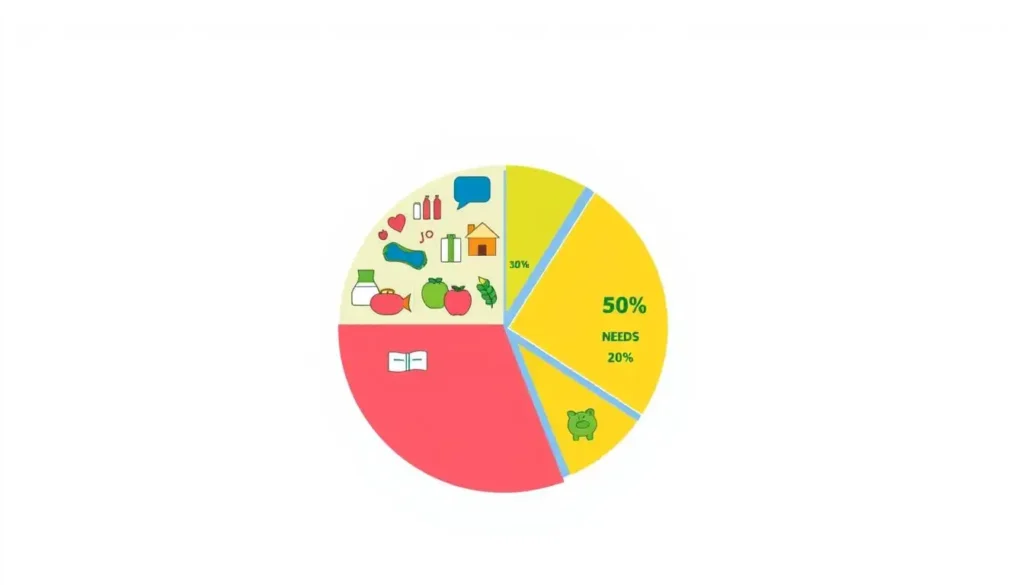Physical Address
304 North Cardinal St.
Dorchester Center, MA 02124
Physical Address
304 North Cardinal St.
Dorchester Center, MA 02124
Learn effective strategies for planning personal budget that will help you track expenses, build savings, and achieve financial security through smart money management.

Are you struggling to make ends meet? Do you feel like your money is slipping through your fingers each month? Creating a personal budget might be the answer. A good budget can help you control your money, reach your savings goals, and feel financially secure.
Making a personal budget is more than just adding up your income and expenses. It means looking closely at how you spend money, setting clear financial goals, and updating your plan often. With a few simple steps, you can make a budget that works for you and helps you achieve your financial dreams.
Building a strong personal financial plan begins with knowing your take-home pay or net income. This is what you earn after taxes and other required payments. After figuring out your net income, you can sort out your necessary expenses and discretionary spending.
Your after-tax income is what you have left for budgeting after taxes and other deductions. This amount is the base for your financial planning.
Then, you must separate your essential expenses (needs) from discretionary spending (wants). Essential expenses usually make up 50% of your net income. They include housing, food, utilities, and insurance. Discretionary spending, which is about 30% of your income, covers things like entertainment and hobbies.
Knowing your take-home pay and spending habits lets you set clear financial goals. Goals should focus on saving for emergencies, retirement, and paying off debt. Using 20% of your income for these goals will help you achieve financial stability.
“Budgeting is the key to financial freedom. It helps you understand where your money is going and allows you to make informed decisions about your financial priorities.”
Keeping a balanced personal budget is key to financial stability and success. The 50/30/20 rule, made famous by U.S. Sen. Elizabeth Warren, is a helpful method. It divides your after-tax income into three parts: needs, wants, and savings.
This rule suggests using 50% of your income for essential costs like rent, utilities, and groceries. The next 30% goes to discretionary spending, like dining out and entertainment. Lastly, 20% should be saved for emergencies, retirement, and debt repayment.
Using the 50/30/20 rule helps balance your budget. It ensures you cover necessary expenses while saving for the future. You can adjust it to fit your personal situation, like if you live in a high-cost area.
To get the most from the 50/30/20 rule, track your spending and know your income. Automate your savings and debt payments. This helps you reach your financial goals, like building an emergency fund or saving for a home.
| Category | Allocation | Examples |
|---|---|---|
| Needs | 50% | Rent/mortgage, utilities, groceries, insurance, debt minimums |
| Wants | 30% | Dining out, entertainment, non-essential purchases |
| Savings | 20% | Emergency fund, retirement contributions, additional debt repayments |
The 50/30/20 rule helps find a balance between budget allocation, savings goals, debt repayment, and financial flexibility. It’s a useful tool on your path to financial stability and prosperity.
“The 50-30-20 budget rule emphasizes the importance of saving for emergencies, retirement, debt repayments, and other financial goals.”

Creating a personal budget is key for financial stability and reaching long-term goals. It means knowing your income, sorting out expenses, and setting priorities. Also, it’s important to regularly check your financial plan.
A good budget helps you avoid spending too much, save for emergencies, and aim for financial freedom. It’s all about being smart with your money.
Don’t forget to be flexible with your budget as your life changes. Sticking to budget management, financial planning, and money tracking can make your finances better. A smart savings strategy is also vital for a secure future.
Having a solid financial base is crucial for big life steps like buying a home, starting a family, or teaching a teenager to drive. A budget helps you reach your financial goals and manage spending better. Remember, insurance is a must for any household to protect against unexpected events.
A personal budget helps you track your spending and save money. It lets you see where your money goes each month. This way, you can feel more in control of your finances and save more easily.
First, figure out your after-tax income. Then, pick a budgeting system that works for you. Next, track your spending and automate your savings. Lastly, regularly check and update your budget.
For couples and families, talking about money is key. Discussing financial goals and priorities is essential.
Essential expenses should take up about 50% of your income. Discretionary spending should be around 30%. The last 20% should go to savings and paying off debt.
The 50/30/20 rule is a simple way to budget. It suggests using 50% for needs, 30% for wants, and 20% for savings and debt. This rule helps balance spending and saving for financial security.
An emergency fund is vital. It should cover three to six months of expenses. This fund provides financial stability and peace of mind during unexpected times or job loss.
Automating savings and debt payments helps you stay on track. Regularly reviewing and adjusting your budget is also important. This keeps your finances stable as your life changes.